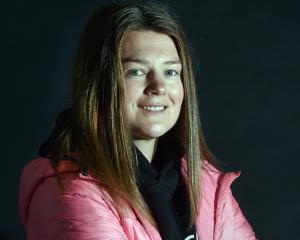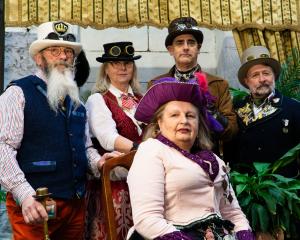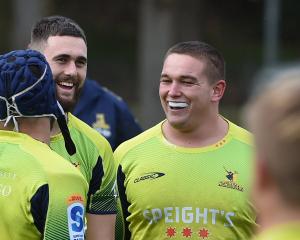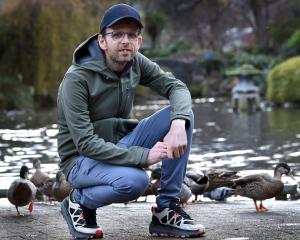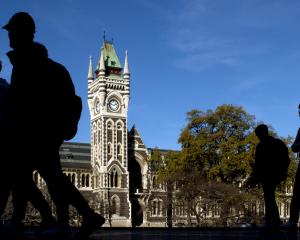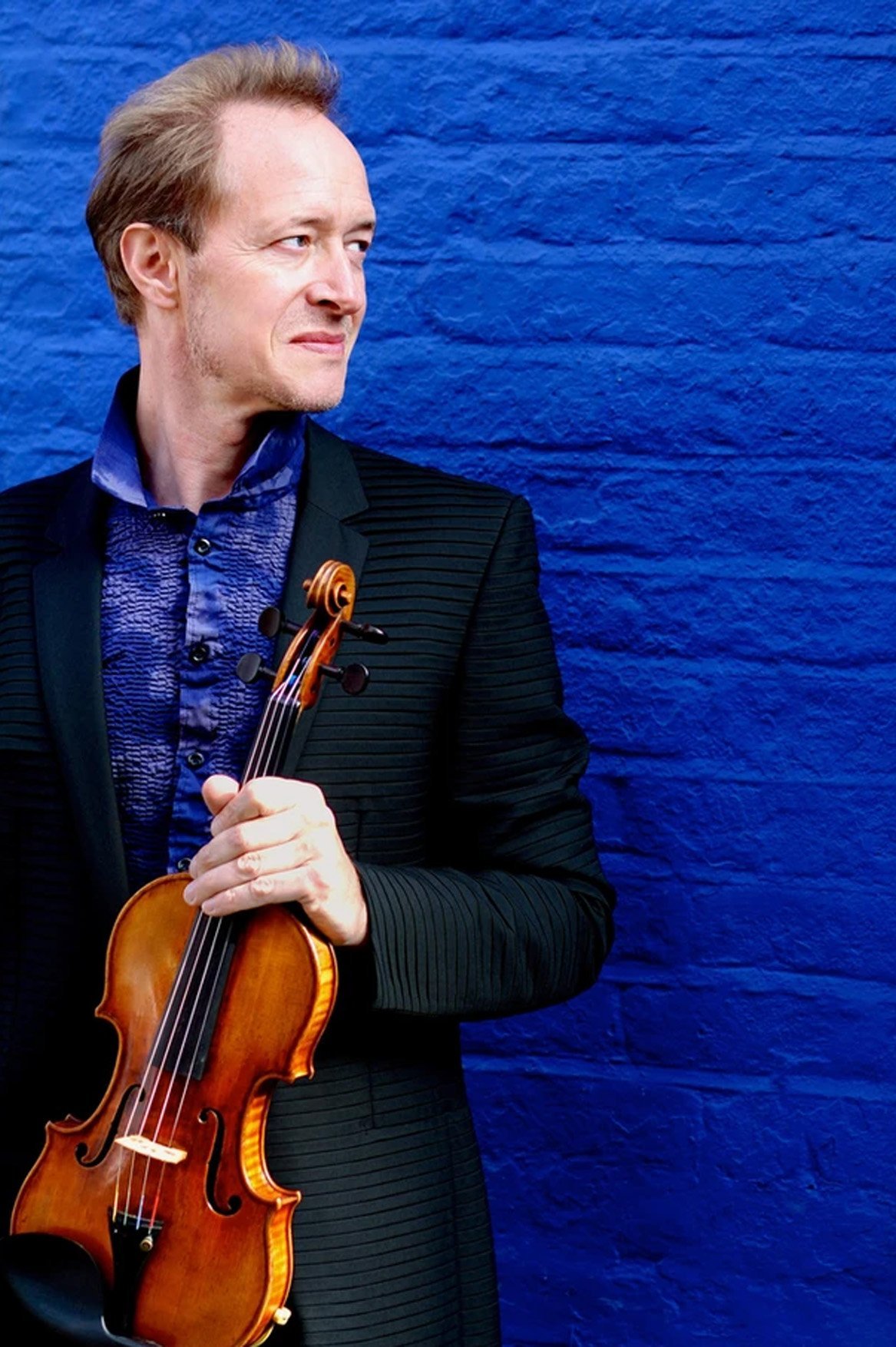
Anthony Marwood put his back out listening so intently to the young violinists competing for one of the country’s top music prizes.
"I don’t take it lightly. I was concentrating like crazy - it’s very hard work and a big responsibility", he says of his role as judge in the Michael Hill International Violin Competition.
The last competition, held in 2019, was his first visit to Queenstown, and he discovered the "fascinating" and very detailed process of the competition.
"It’s being part of this crazy marathon of hearing young people give their all. It’s very affecting."
It has not deterred him from coming back this year to judge alongside fellow violinists James Ehnes, of Canada, Australian-based New Zealander Wilma Smith, pianist Piers Lane (United Kingdom) and past competition winners Bulgarian-American violinist Bella Hristova (2007), Chinese Ning Feng (2005) and Russian-born Kiwi-raised Natalia Lomeiko (2003) for the coming week’s competition.
"It’s a wonderful, very thoughtful competition and I was very happy and intrigued to come back," Marwood said.
This time, fully aware of the intense concentration required as a judge, he has chosen not to perform publicly as well.
"I’m happy for 10 days to focus on listening and not muddle it - I’ll just have to make a separate trip to New Zealand to play concerts."
His trip downunder is special in many ways.
It is a chance to sweep away the bad memories incurred in Australia, where he was when the Covid-19 pandemic hit. Touring and teaching again in Australia is quite "profound" for the British-born violinist.
"It is healing after that rather tortuous stressful time."
He also enjoys coming to New Zealand as he had a "very dear" benefactor, Christopher Marshall, who put together a syndicate to purchase the violin he plays, a 1736 Carlo Bergonzi violin, 17 years ago.
Marshall died last year but Marwood still has a "soft spot" for the country.
Syndicates buying violins for players is common, as the cost of top instruments is mostly outside of the range of violinists themselves.
It is a good investment for the owners and allows musicians to play the best.
"It works all round. I’m lucky with this particular group - they are very hands off but are really interested and supportive as well.
"They have this connection to work of art which makes this beautiful sound as well."
Violins with such a long history are "mystical beings", Marwood says. As they are so particular, it takes time to get to know how they work.
"It is an unpredictable relationship at times. They definitely have a personality, these old ones. They inform you as how things must go as well.
"It’s a two-way street. They teach you a lot - it’s not about you controlling them."
It means often a new violin is easier to play, as it does not yet have its own personality.
"It’s like a blank canvas easy to play straight off."
Travelling is an essential part of any musician’s life and Marwood is no exception.
While born in the United Kingdom and having spent most of his formative years in London, these days he finds himself just as comfortable in other countries.
He describes himself as ex-British prime minister Teresa May’s worst nightmare. May famously claimed in a speech that to be a "citizen of the world you are a citizen of nowhere".
Not only does he enjoy spending time in many countries, such as New Zealand and South Africa, he also is now a dual national with Dutch citizenship.
As Britain is no longer part of the European Union, regaining European citizenship for philosophical, professional and personal (his partner is Dutch) reasons was important but did not come easily. He had to learn Dutch and more about the country’s culture.
"I felt like I needed to do something to swim in the other direction."
Covid lockdowns helped with that, giving him the time to concentrate on learning a new language.
"I love languages. It was an unexpected delight to learn Dutch. I now know how beautiful Dutch can be, which I did not appreciate before."
It makes travel in Europe seamless again and he has a second home in Amsterdam, although the definition of home has both "diluted and intensified" for Marwood.
"I have very intense relationships with a number of places."
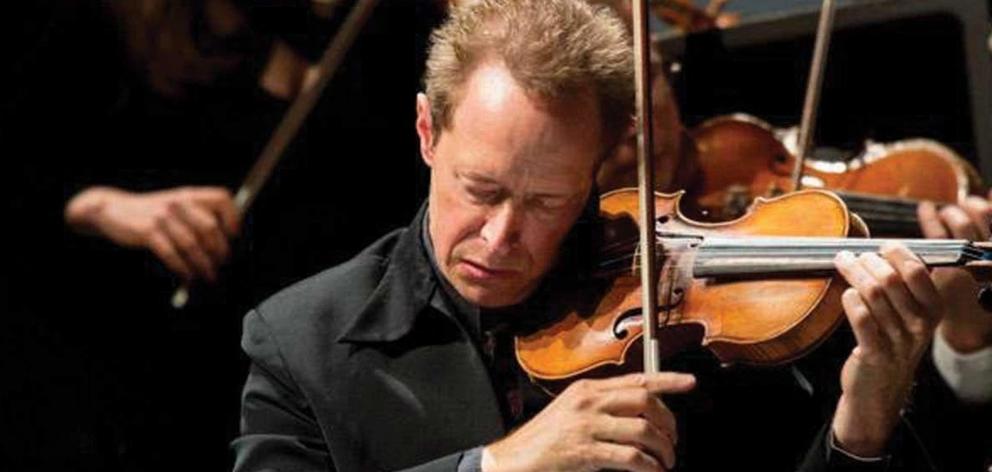
Marwood is the youngest of four children who all played musical instruments.
"I don’t remember a time when I wasn’t hearing that."
So for Marwood, picking up the violin was instinctive, as if he had some prior knowledge of the instrument. He had discovered early as a child that he could tell the "colour of notes" and it felt like a "magic trick"and was fun to do.
"There was no question I wasn’t going to pick up the violin and that it wasn’t going to work for me."
Unsurprisingly he had an aptitude for it and with support and encouragement from teachers, including Emanuel Hurwitz and David Takeno, studied at the Royal Academy of Music and the Guildhall School of Music and Drama.
"I didn’t know anything about the industry but some chance happy encounters with the right people along the way [helped]."
Marwood has gone on to have a busy career as a soloist, director and chamber musician performing with some of the world’s top orchestras in Europe and the United States. He has had many leading composers write concertos for him including Thomas Ades and Sally Beamish and is a prolific recording artist, having released 50 recordings on the Hyperion label.
A particular interest of Marwood’s is chamber music.
He was the violinist of the Forestan Trio for 16 years.
"It’s always been central in my life. For me only playing concertos, I would find that difficult. The interactive element with your colleagues is very inspiring and very grounding. I need that enrichment that I get from close contact. "
He sees the discipline of playing chamber music as essential for all parts of the profession, as it teaches how to blend with colleagues and converse within the orchestra.
"If you are a soloist playing a concerto with an orchestra there is also tremendous give and take. It informs everything.
"I do think that is the heart of music making. If I’m hearing a young violinist playing a Mozart concerto and they’re oblivious to Mozart’s operatic style then that’s a big shortcoming that needs to be remedied."
Smaller forces can contain bigger concepts and larger concepts contain intimacy, so it is very important that a musician understands where the music is coming from, he says.
Today’s artists are very lucky to be able to play music from across such a wide period of time.
"I very much enjoy playing music from different periods.
"I do very much enjoy playing the best of what is written today. The connection between these composers ... I love that flow of energy that goes through the centuries and what composers do with the information they have received so far, how they turn things on their head. I enjoy that variety and breadth."
However, Marwood did put down the violin for three months during the Covid lockdowns, a first for him.
He enjoyed a beautiful spring around his home in Sussex.
"I found the opportunity to literally just stop. While it was filled with anxiety and very strange, it gave me the opportunity to let things in that I might have been missing, that I didn’t know necessarily were missing. It was a curse as well as a blessing."
He always knew there would be a day when he would pick it up again instinctively, just as he did when he was a child.
"That day did come and it was joyful."
To see
Michael Hill International Violin Competition, June 2-10, Queenstown and Auckland.
The competition
Michael Hill International Violin Competition, June 2-10
- This year is the 11th event, the first since the pandemic.
- 16 competitors aged 18 to 28 from around the world.
- Two quarterfinal rounds held in Queenstown.
- Six semifinalists announced on King’s Birthday.
- Semifinal held in Auckland.
- Three finalists announced.
- Grand final with the Auckland Philharmonia Orchestra.
- First prize $40,000 plus a winner's tour and a recording contract.


